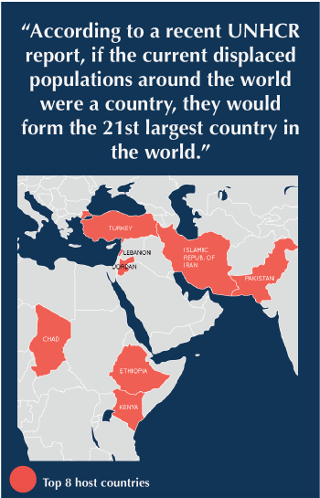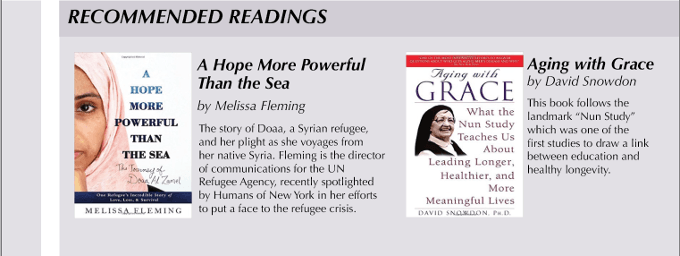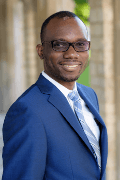by Osefame Ewaleifoh
Providing high quality education for refugees and displaced populations might not be the most urgent public health priority in the short term; however a counter intuitive investment in high quality education might be the most prudent public health investment to guarantee sustained positive health outcome in the long term.
The refugee experience is changing. Increased volume of refugees and duration of their displacement has revealed the inadequacy of existing health access frameworks, which were designed primarily to meet short-term settlement health requirements. Here, I examine the potential role of an education-centered model in promoting access to health and improving long-term health outcomes in refugee and displaced populations around the world. I ask three central questions: first, what role if any does education play in promoting health outcomes and how might that change in refugee and displaced populations? Second, what institutions and infrastructures currently exist to promote health outcomes in refugee and displaced populations? Finally, looking forward in the light of current and predicated migration trends, I examine the role of education in innovatively promoting health access and outcomes in refugee and displaced populations.

About the Author
Osefame Ewaleifoh is a PhD/MPH student at Northwestern University and a co-Editor-in-Chief of the NPHR.

